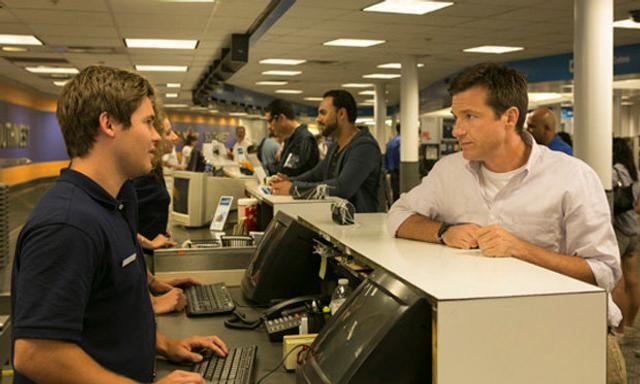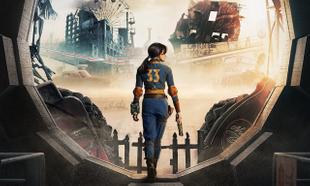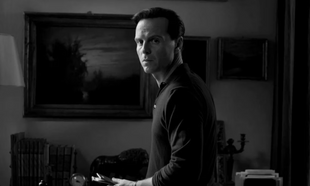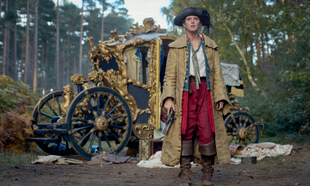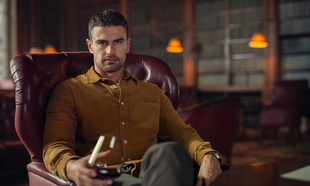When Fox cancelled Arrested Development after barely three seasons, it created just about the biggest upset in modern television. The show had gained a devout fan-base, and enjoyed universal critical praise, so it's no surprise that it’s return to the small screen has been preceded with nothing but hope and joy and an almost unattainable level of anticipation.
Much like their previous exclusive series House of Cards and Hemlock Grove, Netflix have made all 15 new episodes of the new season available at once, allowing the viewer to consume the latest chapter in the Bluth family tale at whatever pace they desire. However, this reviewer put aside seven and a half hours to watch it all in one long take in order to return with an early opinion, and the results are good… mostly.
Every member of the Bluth family has returned to their original roles, while each of the 15 episodes follows one individual and their journey between the end of the season three and "today". It’s been five long years, and the Bluth family aren't feeling any better or brighter. In fact, Season Four on the whole is quite a shade darker than what we’ve come to expect from Arrested Development, with some It’s Always Sunny In Philadelphia levels of discomfort seeping into a few of the episodes.
Without going into any spoiler territory, things have changed quite a bit for the Bluth family, but they’re all still just as inept with dealing with them as always. In some ways they’ve become even worse. Michael (Jason Bateman) is no longer held together by the need to keep his family together and has become perhaps the most unhinged; to the point that he sees no problem in sharing a shower with his son George Michael (Michael Cera). The over-arching story of the season is perhaps a tad too much to take in, certainly on a first viewing. Narrator Ron Howard is doing A LOT of the heavy lifting having to explain the ins-and-outs of the wheres, whats, whys, whos and hows of both the first three seasons ( for those just joining us) and the intervening five years.
Some of the characters seem to either get short changed with screen-time - Buster (Tony Hale) and Maeby (Alia Shawkat) seem to have gotten the short end of the stick - or saddled with uninteresting plots that don't really seem to go anywhere - particularly George Snr and Oscar (both Jeffrey Tambor), who seem to have changed the least from previous seasons. Obviously each of the actors has moved elsewhere with their careers, and there’s a lovely running gag about their constantly changing availability as Michael tries to get them to sign off on a movie of their lives. However, this also means that we rarely get to see the family together as a whole, and it was those family get-togethers that often produced the comedic highlights of the previous series.
On the plus side, Lucille (Jessica Walter) is still as scathingly funny as ever, Lindsay (Portia De Rossi) gets quite a few opportunities to shine with a few different hair-dos, Tobias (David Cross) really REALLY has to deal with "the man inside of me" this time around, and Gob (Will Arnett) is still the same smart yet very stupid scene-stealer that he has always been. The scripts are laced with joke set-ups that may not have a punch-line for another five or ten episodes, but when they do arrive, they almost always land perfectly and hugely satisfactorily.
Then there's the special guest appearances, and you’ll be happy to hear that almost all of your favorites have returned; Barry Zuckercorn, Lucille 2, Ann Veal, Annyong, a shockingly different Steve Holt, Stan Sitwell, The Literal Doctor, Warden Gentles, Kitty, Gene Parmesan… the list goes on and on. The only big omission would appear to be Maggie Lizer, but Julia Louis-Dreyfus is busy off making another modern comedy classic VEEP, so we can forgive her this one time.
New additions range from the sublime (Bridesmaids' Kristen Wiig as a young Lucille Bluth), to the mildly humorous (Seth Rogen as a young George Snr.), to the completely superfluous (John Krazinski in one five second scene for absolutely no real reason). The two biggest additions to the cast are Ron Howard playing himself (although telling you why would spoil it) and Isla Fisher playing a love interest (although telling you for whom would spoil it too).
Overall, perhaps due to the weight of expectation, perhaps due to the sufferings of comparisons, or perhaps because Arrested Development is a show that demands repeat viewings, my first impression of Season Four is that it just doesn't reach the vertiginous highs of its predecessors. There is too much reliance on incidental music where other shows might have a laughing track, and the jarring change in the characters and settings - there’s quite a long stint for some of the family in India, and we never once visit The Bluth Offices - makes it feel like quite a radical change in comparison to what we've come to know and love about Arrested Development.
Much like Buster's left arm, it feels like there’s something missing, and we can’t quite put our finger on it. There are still plenty of laughs to be had here, and perhaps in time we’ll come to love Season Four as much as we love the others. One thing is certain no matter what; Netflix has NOT made a huge mistake by bringing back the Bluths.
